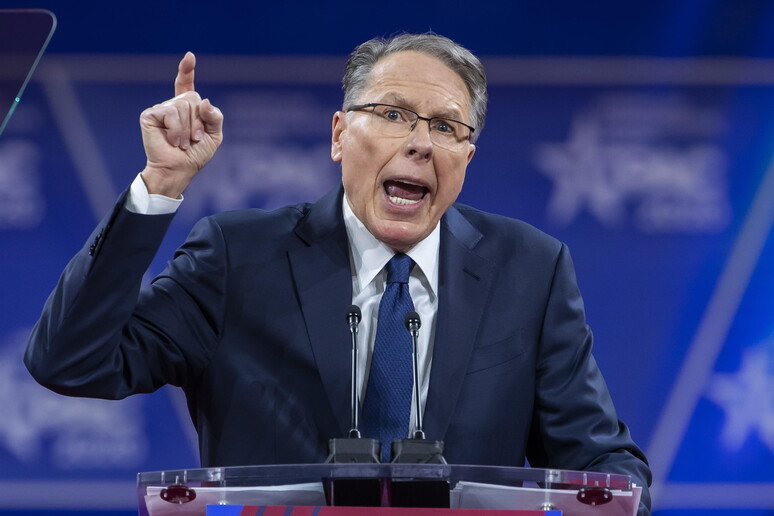Wayne LaPierre, the embattled National Rifle Association (NRA) leader, stands at the precipice of the most significant challenge of his career as he faces a legal battle with New York Attorney General Letitia James. The impending trial, set to begin in a Manhattan courtroom, centers around allegations of mismanagement and corruption within the NRA, casting a long shadow over LaPierre’s tenure.
LaPierre, 74, once regarded as an unassailable figure within the gun rights movement, now confronts a lawsuit seeking his removal from the NRA, an organization that has seen its influence and membership dwindle in recent years. The NRA, which once boasted nearly six million members, has seen its numbers drop to 4.2 million, accompanied by a 44% decrease in revenue since 2016. These financial woes have been compounded by soaring legal costs, which have prompted discussions of a legitimate bankruptcy filing.
The decline of the NRA is attributed partly to internal strife and financial scandals, including extravagant spending by LaPierre. His expenses, including lavish clothing and travel bills, have come under intense scrutiny. This comes alongside revelations of insider transactions and retribution against whistleblowers within the organization. These developments have not only tarnished LaPierre’s image but have also led to a loss of trust among NRA members.
The legal proceedings against LaPierre and other NRA officials stem from a comprehensive investigation by James. The Attorney General’s case is bolstered by a New York state appeals court’s decision to reject the NRA’s bid to end the probe, citing “ample evidence of malfeasance.” This ruling comes as a significant blow to LaPierre, who has consistently framed the investigation as politically motivated.
Adding to the NRA’s woes, former insiders and critics have emerged as formidable adversaries. Notable among them is Oliver North, the organization’s former president, who has expressed shock over the legal expenses incurred under LaPierre’s leadership. Such internal dissent further complicates LaPierre’s efforts to retain control and maintain the NRA’s influence.
Despite these challenges, LaPierre’s impact on the gun rights movement cannot be understated. His tenure has seen the NRA become a stalwart of conservative politics, effectively stalling significant federal gun control measures. However, the trial may redefine his legacy, with jury selection set to begin and a verdict that could reshape the future of the NRA and its leadership.
LaPierre’s fight is not merely for his position but for the survival of an organization that has been central to the American gun violence debate. As the trial unfolds, it will reveal not only the extent of the alleged mismanagement and corruption but also the resilience of the NRA in the face of its most daunting test.












